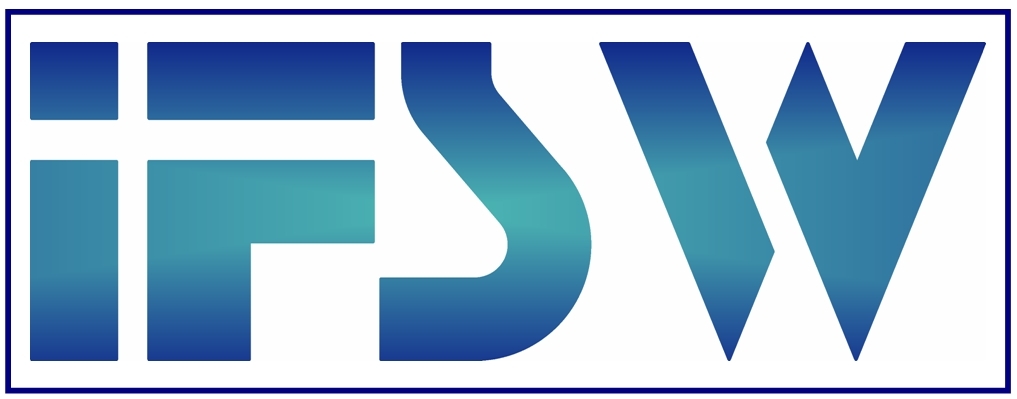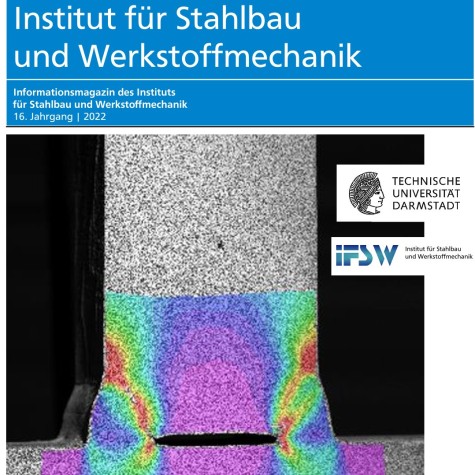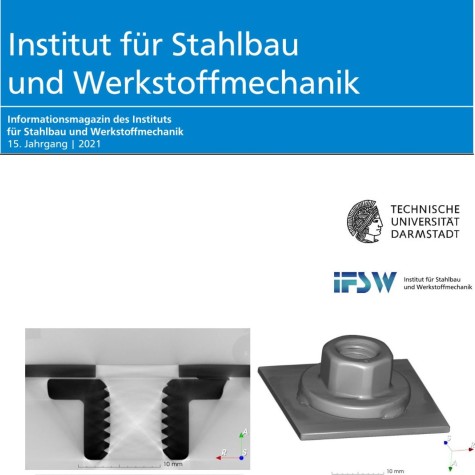A wide range of experimental research is carried out in the institute's experimental areas. On the one hand, crack investigations in the μm range are carried out on material samples and on the other hand, deformation investigations are carried out on bridges with a span of 20 m. The experimental areas are an integral part of the Steel Construction and Mechanics of Materials research areas.
Institute for Steel Construction and Materials Mechanics

Welcome at the Institute for Steel Construction and Materials Mechanics
The Institute for Steel Construction and Materials Mechanics has two departments: Steel Construction and Materials Mechanics. This includes the experimental areas of the institute, a ÜZ center, as well as a DAkkS-accredited testing laboratory and a certification body notified by the DIBt. Since 2004, the institute has been based in the new civil engineering building on the Lichtwiese. The two subject areas form a teaching unit in the degree course.
Department of Steel Construction
Head: Prof. Dr.-Ing. Yvonne Ciupack
All aspects of steel construction, from the theoretical principles of stability and plasticity to the structural tasks of structural design and detailing, are covered in research and teaching.
Teaching in the Bachelor's program includes: Stability theory, design and construction based on the current state of research and with reference to applicable standards and regulations.
In the Master's degree course, the Department of Steel Construction initially focuses on selected topics of steel construction as well as load-bearing methods and lateral-torsional buckling. In more detail, topics such as plate buckling, bridge construction (including composite construction), lightweight construction, timber construction are examined.
The spectrum of research focuses ranges from basic research to involvement in product development: additive manufacturing of steel components using wire arc additive manufacturing, composite structures, sandwich elements, lightweight steel construction, connections and joints in structural engineering, fire behavior of steel structures, lateral-torsional buckling, analysis of learning and thought processes specific to structural engineering, eLearning.
Department of Steel Construction
Department of Materials Mechanics
Head: Prof. Dr.-Ing. Anna Trauth
The Department of Mechanics of Materials is dedicated to modeling the behavior of materials under mechanical stress as realistically as possible and develops experimental methods to investigate the damage behavior of materials. The focus is on questions of deformation, damage and strength under static and cyclic loads. In the Bachelor's program, basic specialist knowledge is taught in the areas of materials in construction and materials mechanics. The Master's program offers lectures and seminars on fatigue strength, fracture mechanics, welding and welding simulation as well as experimental methods in mechanics.
The main areas of research are:
- Fatigue of metals, composite materials and material composites as well as additively manufactured materials
- Fatigue strength of high-strength steels and welded joints
- Development of methods for characterizing and modelling deformation and damage behaviour
Department of Materials Mechanics
Contact and Route Information
Contact
Fon: +49 6151 16-22401
Fax: +49 6151 16-22404
Mail: info@stahlbau.tu-darmstadt.de
Visiting address
Building L5|06
Franziska-Braun-Straße 3
64287 Darmstadt
Postal address
L5|06 507
Franziska-Braun-Straße 3
64287 Darmstadt
Delivery address (packages)
Central post office Lichtwiese
Alarich-Weiss-Straße 4
64287 Darmstadt
Delivery address (Test and Research Lab)
Building L5|07
Franziska-Braun-Straße 5
64287 Darmstadt

















